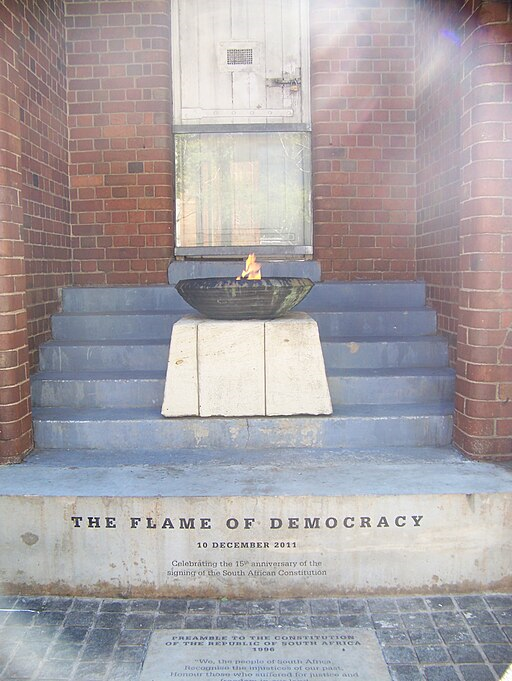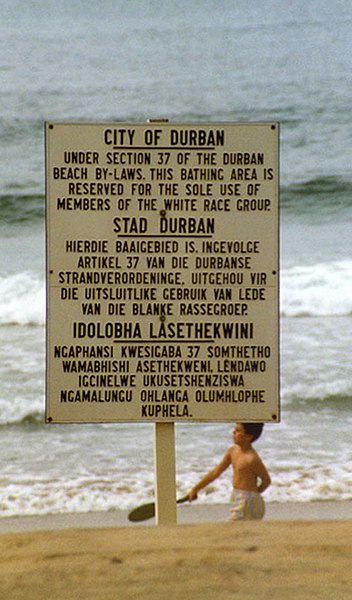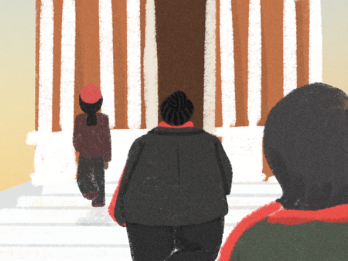
“Until we find each other, we are alone.” - Adrienne Rich
Reflecting on the value of women's solidarity, the 2023 webzine Kyeol prepared a special feature to explore the current state of violence against women around the world. Despite the abolition of apartheid in South Africa, remnants of colonialism and racism have led to high rates of female homicide. In Japan, runaway teenagers driven to the streets to escape domestic violence are becoming victims of sexual exploitation and prostitution industry.
This reality reminds us of the continuum theory proposed by Cynthia Cockburn, in which the political, economic, and social structures and norms of society act as the root cause of sexual violence that penetrates wartime and normal times. Let’s meet the story of women who say “War? Don’t speak to me of war. My daily life is battlefield enough” and are still struggling today.
“Rape and Gender Violence are part of TRC’s Unfinished Business”: South Africa’s Ongoing Quest for Gender Justice Part 1
Helen Scanlon, University of Cape Town, South Africa

South Africa’s Flame of Democracy is situated outside the entrance to the Constitutional Court in Johannesburg, its perpetual flame there to remind citizens of their right to life “free from oppression and injustice.” The Flame was lit in 2011 by former President, and global icon, Nelson Mandela as a reminder of the nation’s long struggle against apartheid. It was also a celebration of the country’s progressive 1996 constitution, which, among other things, provides a comprehensive framework to promote gender equality in the country. But in 2023, in the shadow of the Flame, women from the Khulumani Galela campaign have been sleeping outside the Court to draw attention to what they call the “unfinished business” of South Africa’s Truth and Reconciliation Commission (TRC). Among this “unfinished business” they seek to draw attention to is the hyper-endemic rates of sexual and gender-based violence in the country.
There are many disturbing statistics regarding South Africa’s “relentless war … waged on the bodies of women and children.”[1] According to the South African Police Service (SAPS), in the first three months of 2023, 10,512 people reported being victims of rape. This number represents those who actually reported their experiences of sexual violence to the police, according to the Medical Research Council the real numbers are said to be nine times higher.[2] The country boasts the highest number of women in the world murdered at the hands of their intimate partners - husbands, lovers, and exes, five times more than any other country. According to Women for Change in 2022, 3,843 women were murdered in South Africa and for each South African woman that dies every eight hours, half of them are killed by their partners.[3] Scholar Pumla Quola has noted that South Africa, a country full of commitment to freedoms, is trapped in a “nightmare” of gender-based violence which “terrorizes any possibility of safety.”[4]
There is considerable debate and contestation over the causes of the high rates of gender-based violence and the “rape culture” in South Africa. Analysts have suggested a number of causal explanations ranging from the country’s long history of violence, and ongoing social and economic exclusion, as well as a backlash to women gaining rights.[5] But as Jane Bennett has noted, more is needed to understand why environments that pervade in South Africa “thrive on prevailing social norms which normalize or trivialize sexual assault.”[6]
South Africa’s failings are particularly stark given its status as a trailblazer for new approaches to addressing the past following the fall of apartheid. At the Johannesburg hearings of the TRC in July 1997, Thenjiwe Mtinso, anti-apartheid activist and first chairperson of the Commission of Gender Equality, noted that “the mammoth task that still lies ahead is the continuous and consistent struggle for justice and protection of human rights, especially gender justice and gender rights. The frightening statistics of violence against women and children which has reached, in my own view, genocide levels, have to be addressed.”[7] Understanding why in 2023 this violence remains unaddressed needs to be contextualized.
Gender and Transformation in South Africa

Colonialism and apartheid were both predicated on the marginalization and subjugation of the population in terms of race, gender, class, sexual orientation, and culture. In response, in 1994 the new democratic dispensation set about eliminating the various forms of discrimination that underpinned South Africa’s abusive past. Among South Africa’s new frameworks, the 1996 Constitution commits that: “The state may not unfairly discriminate directly or indirectly against anyone on one or more grounds, including race, gender, sex, pregnancy, marital status, ethnic or social origin, colour, sexual orientation, age, disability, religion, conscience, belief, culture, language, and birth.”[8]
implemented to confront gender-based violence, such as the 1998 Domestic Violence Act and the Sexual Offences and Related Matters Act, amended in 2022. In addition, one of South Africa’s oft-cited achievements is the representation of women in public office, which has been achieved through the ruling African National Congress’s own quota system. Significantly, while (white) women made up just three percent of parliamentarians during the last apartheid government, following the first democratic elections in 1994 the number of women increased ten-fold. By 2009, women made up 44 percent of those in the National Assembly, the third highest representation of women parliamentarians in the world. And in the face of the high rates of gender-based violence since 2000 Thuthuzela Care Centres have been established to provide better support for survivors of sexual violence. This includes one-stop centres providing access to psycho-social support, as well as medical and legal services.
However, while new frameworks to enshrine gender rights have been created, they have been accompanied by spiraling levels of violence and inequality in the post-apartheid era. For the majority of women economic and social vulnerability continues despite the gender-sensitive laws and constitutional frameworks. In 2022, over 41 percent of South African women were unemployed, and 71 percent of African women were living below the poverty line. For those that are employed, the gender pay gap is sitting at 30 percent.[9] And as Amanda Gouws has pointed out, laws are simply pieces of paper if the police and the courts fail to consistently implement and enforce them. Underfunding, poor training, and inadequate sensitivity education also beleaguer the current infrastructure. Pumla Quola has observed that “rape survivors expected the post-1994 justice system could offer them justice. This dream and hope, however, was to be betrayed again and again from 1994.”[10]
In the face of growing anger at the perceived betrayal of South Africa’s constitutional order, the National Strategic Plan for Gender Based Violence and Femicide (NSP-GBVF) was outlined in 2020. Forced into action by the #TotalShutDown movement, the government-created NSP promises interventions in a number of areas including prevention of, and accountability for GBV. It was born from an upsurge in protest over the unacceptable levels of violence in the country. Yet as Phinah Kodisang has noted, the NSP is based on a number of assumptions “including the willingness and readiness to confront and transform patriarchal norms that feed GBV” by those who hold power in South Africa[11]
Footnotes
- ^ Sesona Ngqakamba, “Ramaphosa calls on men to do more to prevent gender-based violence, following staggering rape stats accreditation” News24 22 November 2021.
- ^ Pumla Dineo Quola, Rape: A South African Nightmare (Jacana, 2015), p.9.
- ^ Women for Change available at https://womenforchange.co.za/
- ^ Jane Bennett, “Review: Rape: A South African Nightmare, by Pumla Dineo Gqola”. Feminist Africa 22 (201) p.234.
- ^ Amanda Gouws, “Violence against women is staggeringly high in South Africa – a different way of thinking about it is needed” The Conversation, 29 November 2022.
- ^ Jane Bennett, Review Rape: A South African Nightmare, by Pumla Dineo Gqola. Feminist Africa 22 (201) p.234.
- ^ Thenjiwe Mtintso, Truth and Reconciliation Commission of South Africa. Truth and Reconciliation Commission of South Africa Report Vol 5 (1998), p.419.
- ^ Constitution of the Republic of South Africa, 1996 Available at https://www.gov.za/documents/constitution-republic-south-africa-1996
- ^ Studies in Poverty and Inequality Institute, “Resonance FM: Poverty and the dire state of women in South Africa” Available at https://spii.org.za/poverty-and-the-dire-state-of-women-in-south-africa/
- ^ Pumla Dineo Quola, Rape: A South African Nightmare (Jacana, 2015), p.12.
- ^ Phinah Kodisang, “Tackling gender-based violence and femicide requires collective effort” Mail and Guardian, 8 October 2022 Available at https://mg.co.za/thoughtleader/opinion/2022-10-08-tackling-gender-based-violence-and-femicide-requires-collective-effort/
Related contents
-

- “Rape and Gender Violence are part of TRC’s Unfinished Business”: South Africa’s Ongoing Quest for Gender Justice (2)
-
Clearly, liberal democratic initiatives such as the enshrinement of women's rights will continue to fail until structural inequalities, as well as the social norms that allow gender-based violence, are confronted
- Writer Helen Scanlon
-
Professor Helen Scanlon is the convenor of the Justice and Transformation Programme at the University of Cape Town (UCT), South Africa. She works as both a practitioner and academic on transitional justice and has published widely on the topics of transitional justice, gender, and peacebuilding. Her most recent work includes Gender, Transitional Justice and Memorial Arts: Global Perspectives on Commemoration and Mobilization (London: Routledge, 2021) co-edited with Jelke Boesten.